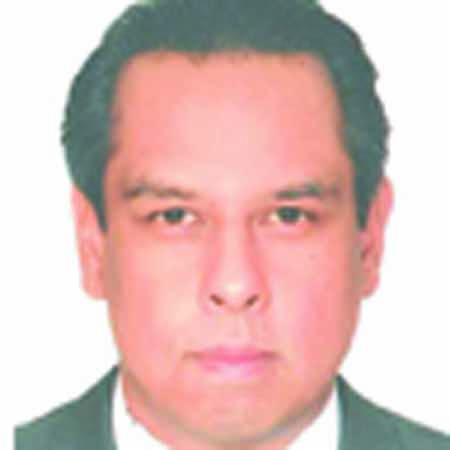Opinion
City 2.0
There is a need to ‘re-think’ cities in order to make urbanisation a positive and productive transformation
Bimal Pratap Shah & Manish Pokharel
"The 19th century was a century of empires, the 20th century, a century of nation states. The 21st century will be a century of cities,” said Wellington Webb, former Mayor of Denver City in the US. Whether we like it or not, cities rather than states will become the islands of governance on which the future world order will be built, weakening the concept of nation states to a certain extent.
The United Nations Secretariat says 66 percent of the world’s population will reside in urban areas by the year 2050 as a result of an upsurge in rural-urban migration movements. At the same time, if cities are not careful, rapid and unplanned urban growth will most likely threaten social order, mainly because urban areas are getting increasingly unequal by the day as hundreds of millions of the urban poor are forced to live in sub-standard conditions. Therefore, there is a need to ‘re-think’ cities in order to make urbanisation a positive and productive transformation that will deliver long-term gains to citizens.
Need for autonomy
Many cities in developing countries have not yet benefited from globalisation and urbanisation, because of their backward looking urban policies in terms of globalisation of economy. One of the major contributors to this problem is the overly centralised states that are not able to build bridges between the global system and various cultures and territories that make up the nation. As a result, local and regional governments have already emerged as more flexible bodies capable of managing various identities of the populace as well as negotiating continuous adaptation with rapid urbanisation and ubiquitous technology.
In this new environment, innovation is key to economic progress. Cities that are not able to harness the creative potential of the internet and other new technologies to generate new knowledge to enhance activities that bring about economic benefits to its inhabitants will most likely fail. Therefore, cities need to devise a strategy to prepare adequate human resources by providing high quality education at all levels to incorporate global techno-local innovations in the cities’ economic system. But, first, cities will need an autonomy to negotiate their articulation with multi-nationals and supra-state governments that operate in supra-local spheres.
Simply put, cities should aspire to be Technopolis like the Silicon Valley. For this to happen, they should have in place a combination of technological infrastructure, human resources, and flexible local political structure that can maneuver increasingly destabilising ups and downs of the global economy. Additionally, the central government has to understand the fact that the techno-economic globalisation will bring about a systematic crisis of nation states. Every city will want to call its own shots in the face of rapid urbanisation and technological advancement, because central governments in most part will remain too rigid and slow to adapt to the ways of doing business at the speed of thought.
Right-wing nationalism
This is not to say that nation-states will literally disappear. The plurality of territorial and cultural identities aspiring to be represented by nation states tend to generate increasingly conflicting processes delegitimising the idea of national representation, thus welcoming the age of “global citizens”—a new era where limited, political boundaries are no longer relevant. For instance, globalisation and European integration have prompted a growth in post-nationalism, which looks beyond nation-states. In this era, some “city-regions” tend to adopt economic renewal policies, while others will be determined mainly by their political histories and national identity. For example, 51.9 percent of the UK voted on June 23 to leave the European Union (EU).
Those who argued for Brexit feel there are several reasons for this surprising outcome. It looks as though right-wing nationalism is again gaining a foothold in Europe. But, dig deeper and the data tell another story.
There is a significant geographical and generational divide. Northern Ireland and Scotland voted to remain in the EU. Likewise, 73 percent of the age group 18-24, 62 percent of the age group 25-34, 52 percent of the age group 35-44, and 62 percent of the Londoners voted to remain in the EU. The younger generation and the inhabitants of the Cosmopolis voted against Brexit. So Brexit is a backward looking decision, as it is not aligned with the aspirations of the UK’s new generation and urbanites. In short, the UK has become a nation afraid of the future. As the EU threatens to untangle with Brexit, the African Union (AU), thinking beyond nation states, recently launched the African passport that will facilitate the free movement of people in all 54 member states.
London to Kathmandu
Nepal has to think in that line as well. If not, new political parties that are aligned with the aspirations of the youth, migrant workers, and urban dwellers will surely dethrone mainstream political parties. To avoid this fate, they have to abandon “isms” unfit for the 21st century and adapt to the rapidly changing techno-economic paradigm. The rise of the fledgling Aam Admi Party (AAP) in Delhi is one such example. The party, born from the crucible of the anti-corruption movement, has generated a new kind of hope among Delhiites never observed before.
At home, the Kathmandu Valley accounts for 25 percent of the total urban population. For the Valley to flourish, it has to think beyond clearly defined nation states and work towards integrating a rapidly urbanising population directly into regional and international markets. In the wake of the EU referendum, the Mayor of London, Sadiq Khan, has demanded more autonomy, for he feels the Cosmopolis should be able to determine its own future. The new UK Prime Minister Theresa May has also hinted at granting more autonomy to the city. Kathmandu needs the same to manage its governance, as well as ecological, economic, and security affairs.
Pokharel is Head of the Department of Computer Science and Engineering at Kathmandu University and a member of the Information Communication and Technology (ICT) Council; Shah is with the Geneva based Société Générale de Surveillance. All views expressed in the article are personal




 9.6°C Kathmandu
9.6°C Kathmandu











